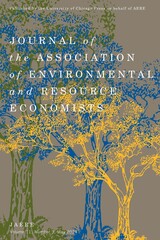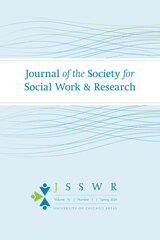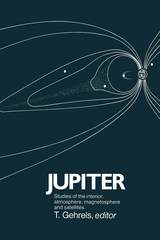760 scholarly books by Intellect Books and 5
have author last names that start with Z
760 scholarly books by Intellect Books and 5
760 scholarly books by Intellect Books
5 have author last names that start with Z have author last names that start with Z
5 have author last names that start with Z have author last names that start with Z

World Film Locations
Cleveland
Alberto Zambenedetti
Intellect Books, 2016
The prototypical rust belt city, Cleveland has long served as an emblem of late twentieth-century urban decay. But recent decades have brought a cultural and economic renaissance—a revival that has been reflected and aided by the growing number of films being shot on location there.
This new entry in the World Film Locations series offers the first-ever extended look at Cleveland on screen. Richly illustrated with images from dozens of productions, it reveals Cleveland to be usefully chameleonic, appealing to some filmmakers for its modern downtown’s ability to mimic more prominent (and more expensive) cities, to others for the way its shuttered factories and decaying docks signify contemporary urban distress. With entries on such classics as The Fortune Cookie, The Deer Hunter, A Christmas Story, and Marvel’s The Avengers, as well as lesser-known films, the volume reveals Cleveland to be a far more compelling, and far more varied, on-screen presence than even most film buffs would expect.
Like all the books in this series, World Film Locations: Cleveland is designed to appeal to cinephiles and scholars alike, while also serving as a silver screen souvenir for those who make the city their home as well as for those who visit it.
This new entry in the World Film Locations series offers the first-ever extended look at Cleveland on screen. Richly illustrated with images from dozens of productions, it reveals Cleveland to be usefully chameleonic, appealing to some filmmakers for its modern downtown’s ability to mimic more prominent (and more expensive) cities, to others for the way its shuttered factories and decaying docks signify contemporary urban distress. With entries on such classics as The Fortune Cookie, The Deer Hunter, A Christmas Story, and Marvel’s The Avengers, as well as lesser-known films, the volume reveals Cleveland to be a far more compelling, and far more varied, on-screen presence than even most film buffs would expect.
Like all the books in this series, World Film Locations: Cleveland is designed to appeal to cinephiles and scholars alike, while also serving as a silver screen souvenir for those who make the city their home as well as for those who visit it.
[more]

World Film Locations
Florence
Alberto Zambenedetti
Intellect Books, 2014
Florence, with its rich history, privileged place in the canon of Western art, and long-standing relationship with the moving image, is a cinematic city equal to Venice or Rome. This edition in the well-established World Film Locations series explores Florence as it is manifested in the minds of filmmakers and filmgoers. Contributors to the collection consider a wide range of topics, including the tourist’s perception of Florence, representations of art and artists on screen, the camera-friendly Tuscan countryside and mouthwatering local cuisine, and filmic adaptations of canonical Italian literature. Through scene reviews of films including Bobby Deerfield, A Room with a View, Tea with Mussolini, and Under the Tuscan Sun, contributors delve deeper into the makeup of the city, looking at both familiar and unfamiliar locations through the lens of such filmmakers as Roberto Rossellini, Mario Monicelli, Brian DePalma, and Ridley Scott.
From the Duomo to the Uffizi gallery, Florence is filled with history, art, and culture. For those who crave a passport to this Tuscan capital, World Film Locations: Florence will take you there without you ever having to leave your library.
From the Duomo to the Uffizi gallery, Florence is filled with history, art, and culture. For those who crave a passport to this Tuscan capital, World Film Locations: Florence will take you there without you ever having to leave your library.
[more]

Kiosk Literature of Silver Age Spain
Modernity and Mass Culture
Jeffrey Zamostny
Intellect Books, 2017
The so-called “Silver Age” of Spain ran from 1898 to the rise of Franco in 1939 and was characterized by intense urbanization, widespread class struggle and mobility, and a boom in mass culture. This book offers a close look at one manifestation of that mass culture: weekly collections of short, often pocket-sized books sold in urban kiosks at low prices. These series published a wide range of literature in a variety of genres and formats, but their role as disseminators of erotic and anarchist fiction led them to be censored by the Franco dictatorship. This book offers the most detailed scholarly analysis of kiosk literature to date, examining the kiosk phenomenon through the lens of contemporary interdisciplinary theories of urban space, visuality, celebrity, gender and sexuality, and the digital humanities.
[more]

The Morality of Mrs. Dulska
A Play by Gabriela Zapolska
Gabriela Zapolska
Intellect Books, 2007
Born during the tumultuous one-hundred-year division of Poland by Austria, Prussia, and Russia, Gabriela Zapolska (1857–1921) was an actor, journalist, and playwright who wrote over thirty plays in her lifetime. In her best-known work, The Morality of Mrs. Dulska, a tyrannical landlady harasses, exploits, and even prostitutes the eccentric cast of tenants who occupy her stone tenement building. The petty-bourgeois tragicomedy that ensues is regarded as a landmark of early modernist Polish drama.
A cross between Bertolt Brecht’s Mother Courage and Patricia Routledge’s Hyacinth Bucket, Mrs. Dulska keeps her purse strings tightly drawn and shows no compassion towards the sad plights of her lodgers—until she is forced to come to terms with her own possessive love for her son. Now available for the first time in an English-language edition that firmly situates the play in the context of its performance history, Zapolska’s incisive play is an uncompromising look at gender, class, and relationships in fin-de-siècle Poland.
“In her introduction to Zapolska's seminal play, Murjas discusses the many intriguing challenges involved in its cultural transference, combining the perspective of translator with that of theatre practitioner. This book is a rare treat in a much neglected area of modern scholarship.”—Elwira Grossman, University of Glasgow
[more]

Fan Phenomena
Supernatural
Lynn Zubernis
Intellect Books, 2014
Supernatural premiered on September 13, 2005, on what was then called the WB Network. Creator Eric Kripke was inspired by Jack Kerouac’s On The Road, putting his heroes, brothers Sam and Dean Winchester, in a big black ’67 Impala and sending them in search of the urban legends that fascinated him. The series attracted a passionate fan base from the start and was described as a “cultural attractor” that tapped into the zeitgeist of the moment, reflecting global fears of terrorism with its themes of fighting unseen evil. The chemistry between the lead actors, Jared Padalecki and Jensen Ackles, contributed to the show’s initial success, and Supernatural found its niche when it combined demon-hunting adventures with a powerful relationship drama that explored the intense, complicated bond between the brothers. Supernatural is as much a story of familial ties, love, and loyalty as it is of “saving people, hunting things.”
Fan Phenomena: Supernatural explores the ongoing fascination and passion for a show that developed a relationship with fans through eight seasons and continues to have an impact on fan culture to the present day. Essays here explore the rich dynamic that has developed between fans and producers, actors, writers, directors, the show creator, and showrunners through online interactions on Twitter and Facebook, face-to-face exchanges at conventions, and representations of fandom within the show's meta-episodes. Contributors also explore gender and sexuality in the show and in fan art; the visual dynamics, cinematography, and symbolism in the episodes as well as the fan videos they inspire; and the culture of influence, learning, and teaching in the series.
Fan Phenomena: Supernatural explores the ongoing fascination and passion for a show that developed a relationship with fans through eight seasons and continues to have an impact on fan culture to the present day. Essays here explore the rich dynamic that has developed between fans and producers, actors, writers, directors, the show creator, and showrunners through online interactions on Twitter and Facebook, face-to-face exchanges at conventions, and representations of fandom within the show's meta-episodes. Contributors also explore gender and sexuality in the show and in fan art; the visual dynamics, cinematography, and symbolism in the episodes as well as the fan videos they inspire; and the culture of influence, learning, and teaching in the series.
[more]
READERS
Browse our collection.
PUBLISHERS
See BiblioVault's publisher services.
STUDENT SERVICES
Files for college accessibility offices.
UChicago Accessibility Resources
home | accessibility | search | about | contact us
BiblioVault ® 2001 - 2024
The University of Chicago Press









